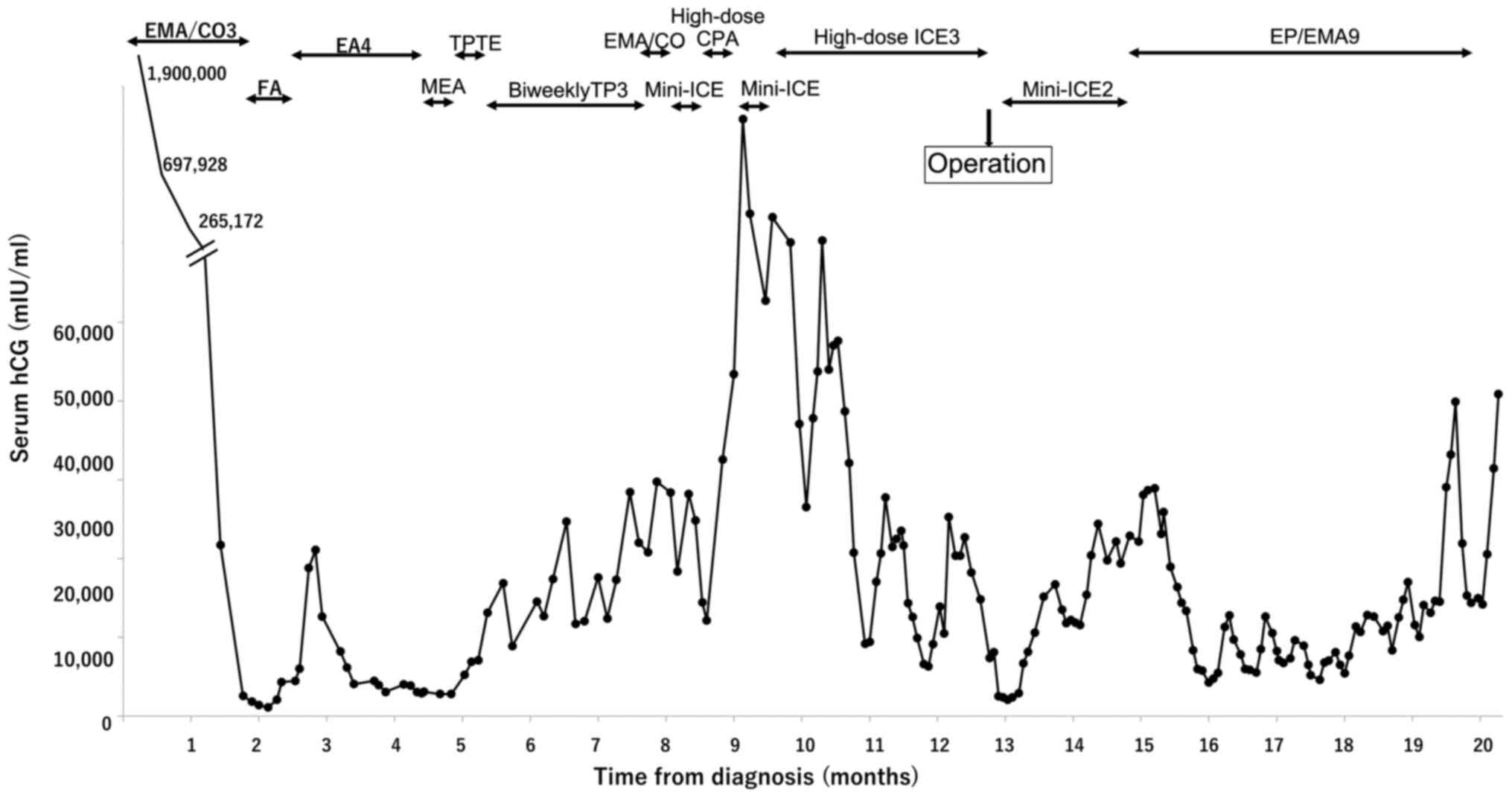Spandidos Publications style
Niimi K, Yamamoto E, Morita S, Morikawa M, Hattori H, Hatakeyama M, Morita M, Nishino K, Oda Y, Watanabe E, Watanabe E, et al: Next‑generation genome sequencing of a matched normal‑tumor pair from a patient with intractable gestational choriocarcinoma: A case report. Mol Clin Oncol 15: 143, 2021.
APA
Niimi, K., Yamamoto, E., Morita, S., Morikawa, M., Hattori, H., Hatakeyama, M. ... Kikkawa, F. (2021). Next‑generation genome sequencing of a matched normal‑tumor pair from a patient with intractable gestational choriocarcinoma: A case report. Molecular and Clinical Oncology, 15, 143. https://doi.org/10.3892/mco.2021.2305
MLA
Niimi, K., Yamamoto, E., Morita, S., Morikawa, M., Hattori, H., Hatakeyama, M., Morita, M., Nishino, K., Oda, Y., Watanabe, E., Yamamoto, T., Kajiyama, H., Kikkawa, F."Next‑generation genome sequencing of a matched normal‑tumor pair from a patient with intractable gestational choriocarcinoma: A case report". Molecular and Clinical Oncology 15.1 (2021): 143.
Chicago
Niimi, K., Yamamoto, E., Morita, S., Morikawa, M., Hattori, H., Hatakeyama, M., Morita, M., Nishino, K., Oda, Y., Watanabe, E., Yamamoto, T., Kajiyama, H., Kikkawa, F."Next‑generation genome sequencing of a matched normal‑tumor pair from a patient with intractable gestational choriocarcinoma: A case report". Molecular and Clinical Oncology 15, no. 1 (2021): 143. https://doi.org/10.3892/mco.2021.2305















